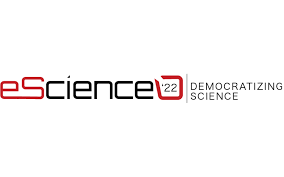 RCC’s Director gave a keynote speech at this year’s IEEE eScience conference in Salt Lake City, Utah, USA, on Thursday, 13 October.
RCC’s Director gave a keynote speech at this year’s IEEE eScience conference in Salt Lake City, Utah, USA, on Thursday, 13 October.
Professor David Abramson spoke about Translational Computer Science as a paradigm underpinning eScience.
“Given the increasingly pervasive role and growing importance of computing and data in all aspects of science and society, fundamental advances in computer science and their translation to the real world have become essential,” said David in the abstract for his keynote.
“Consequently, there may be benefits to formalizing Translational Computer Science (TCS) to complement the traditional foundational and applied modes of computer science research, as has been done for translational medicine. TCS has the potential to accelerate the impact of computer science research overall.”
In his talk, David defined TCS and discussed its attributes. He also outlined a number of roadblocks that have limited its adoption to date and sketched a path forward.
David said he was “very happy to have attended a physical eScience meeting after two years of being virtual.”
“eScience is a unique conference focused on translating novel computer science into practice, which, coincidentally, was the topic of my keynote address.”
At eScience 2022, David also chaired the eScience steering committee that managed the conference, and he presented a paper about democratising large-scale instrument-based science and introduced a University of Queensland prototype.
He was also part of a panel discussion about “Open Data and the Democratization of Science”, and was on the panel that judged the conference’s best papers.
IEEE [Institute of Electrical and Electronics Engineers] eScience 2022 brought together interdisciplinary research communities, developers and users of eScience applications and enabling IT technologies across a week from 10–14 October.
The conference interprets eScience in its broadest meaning that enables and improves innovation in data- and compute-intensive research across all domain sciences ranging from traditional areas in physics and earth sciences to more recent fields, such as social sciences, arts and humanities, and artificial intelligence for a wide variety of target architectures including HPC, cloud and Internet of Things infrastructures.



